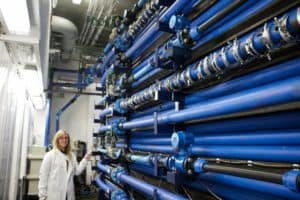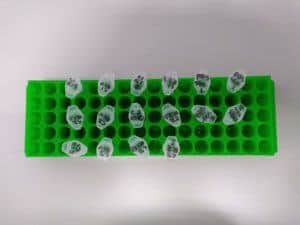My Work
"I'm a PhD scientist researching how to treat drinking water better"I am a PhD researcher. This means I’m a student who goes to a university instead of a school. The qualification I am trying to get at the end of it, similar to SATS or GCSEs or A Levels is a PhD (Doctor of Philosophy). It is called a Doctor of Philosophy because it means you’re not a medical doctor (Doctor of Medicine) but something else. My PhD, for instance, is in engineering and microbiology. So although it is called a Doctor of Philosophy, it doesn’t have to be in philosophy but can be in any subject.

My PhD is different to school because I have no exams or lessons. Instead, PhD students have to write one giant piece of coursework, around 80,000-100,000 words, basically a book, about what experiments you have done and what you have learned. That’s a lot of writing! But I don’t mind because I hate exams! Also, PhDs are 3-4 years long. I think it’s plenty of time to write a book. I am in my 3rd year and have 1 year left to go.

The research I am doing to get my PhD is all about drinking water. At the moment in the UK we have really good quality water but we use a lot of chemicals (e.g. chlorine) and do a lot of treatment (which costs people time and money) to get water from river water to tap water. I’m looking into how we could get the same quality of water but using other ways of treating it. For example, we could use UV light instead of chlorine.
I’m building big loops of pipe (13m long), one which has water treated with no chemicals in and one which has water treated with chemicals in. I’m going to compare what microbiology, what creatures grow that can’t be seen by human eyes, in both of these pipes and see if there are any differences. But how can I count these creatures if I can’t see them? I use equipment called a “flow cytometer”. I use lasers to count the numbers of cells.

I really enjoy my work. I think it is really important for everyone in the UK to have safe, clean drinking water. In the future, some of the chemicals we use right now will have ran out. I’m trying to look at new ways of treating water that won’t run out.